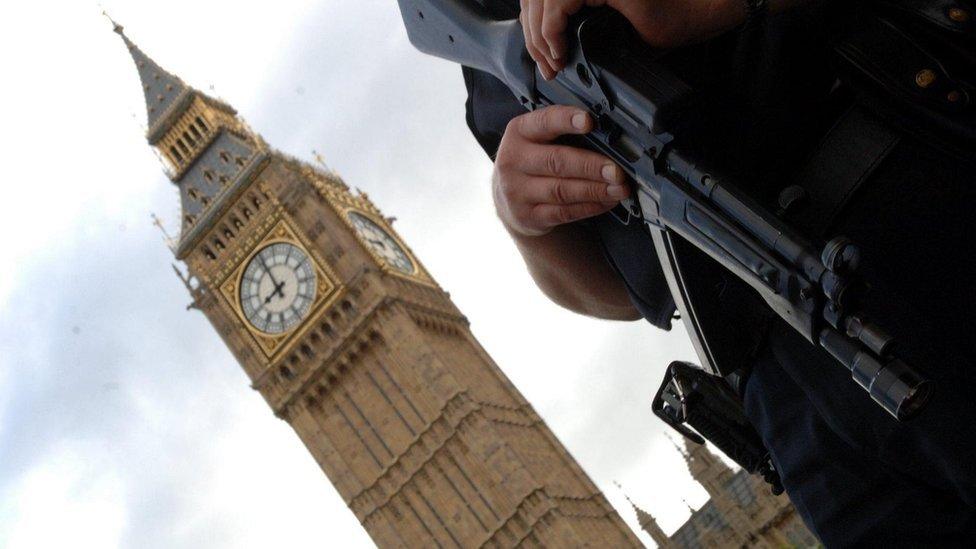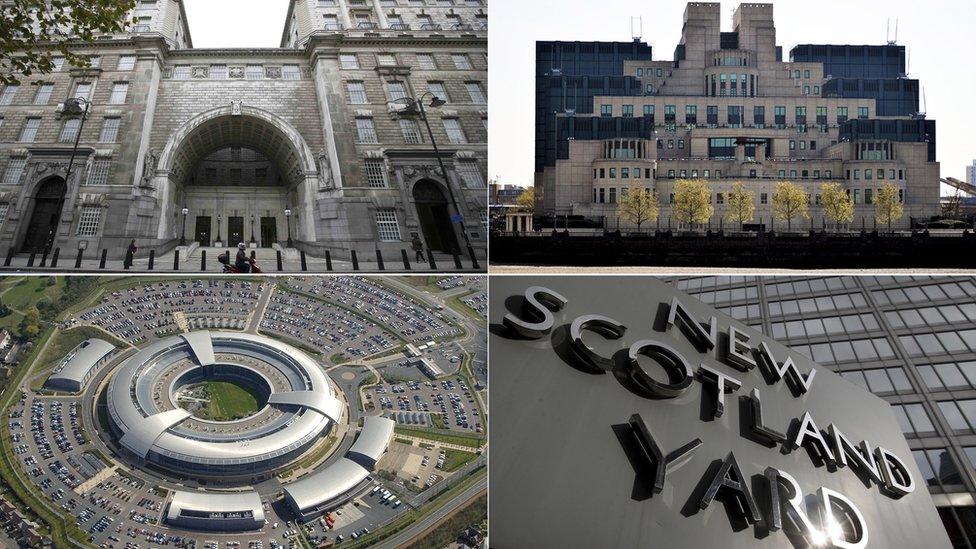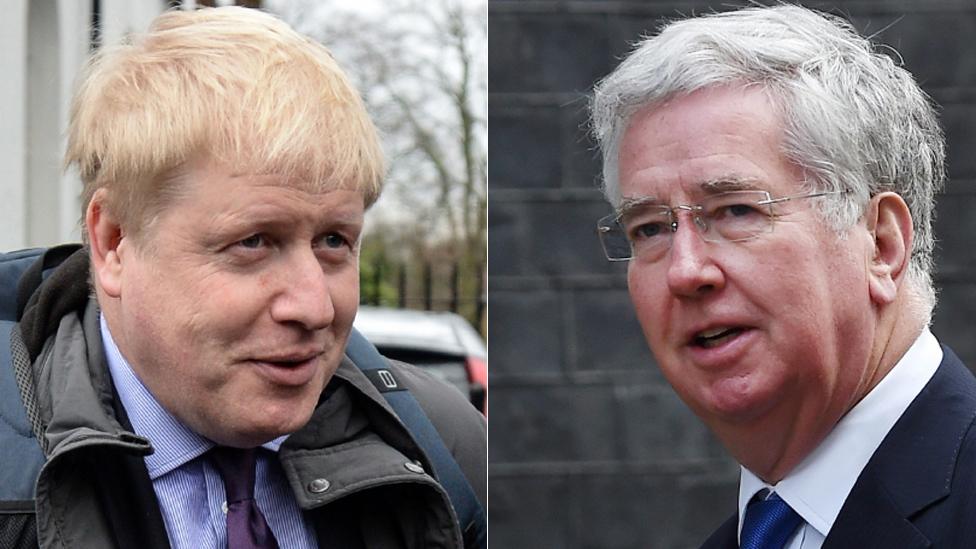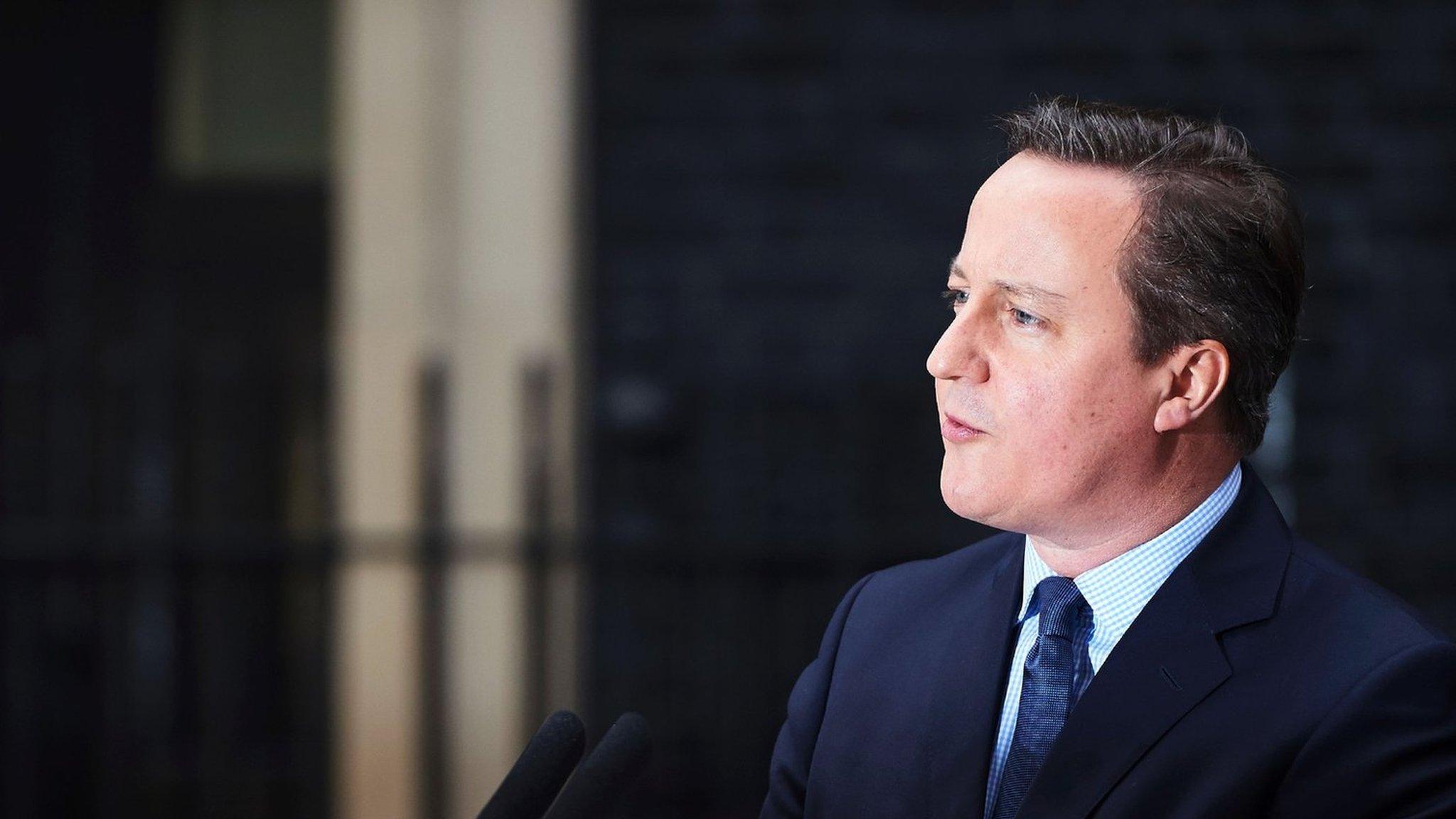EU referendum: The debate around counter-terrorism
- Published

Is Britain more - or less - at risk of a major terrorist attack if it leaves the EU?
It is an important question and the public deserves a straight answer. Yet in the current heated debate it risks being both politicised and blurred by conflation with other issues like the economy, migration and policies towards Russia.
So what are the facts?
The UK is currently at threat level, external "severe", the second highest on the scale, meaning the government judges a terrorist attack to be "highly likely" (but not necessarily imminent).
Britain is right up at the top of so-called Islamic State's target list, along with France, Belgium, Germany and Denmark. MI5 and police estimate there to be more than 2,000 individuals living here who have sympathies with or connections to international terrorism, most of it IS-inspired.
There are two principal reasons why the UK has not yet suffered the sort of Marauding Terrorist Firearms Attack (MTFA) experienced twice by Parisians last year.
One is better intelligence, the other is better borders.
That said, no-one in counter-terrorism circles is being complacent that such an attack could not still happen here.
Better intelligence
After the 9/11 attacks of 2001 and then again after the London bombings of 2005, Britain's counter-terrorism infrastructure was reformed to break down inter-agency barriers and do away with the sort of departmental "silos" that, sadly, still exist in many European nations.
So Britain's MI5, the domestic security service, works closely with MI6, the external intelligence-gathering agency, GCHQ and the Metropolitan Police.

Old rivalries have largely been set aside. Yet in France and Belgium the police and intelligence agencies hardly talk to each other, they share very little.
Absurdly, for a Belgian police officer to find out what Belgian intelligence knows about a threat, he or she sometimes needs to learn it from the UK police, who learn it from UK intelligence, who learn it from Belgian intelligence.
When it comes to EU-wide counter-terrorism, national intelligence agencies are even less willing to divulge their secrets.
Better borders
On borders, Britain has something that continental European countries do not: A single coastline.

British counter-terrorism officials say that because the UK is not part of Europe's Schengen open borders agreement it is considerably more difficult - though not impossible - for terrorists and organised criminals to acquire the sort of powerful automatic weapons, notably Kalashnikovs, used in the Paris attacks last November.
A senior EU counter terrorism official admitted to me last year, prior to the migrant crisis, that although the EU's external borders had been strengthened, once weapons had crossed over that border from the Balkans there was little to stop them being moved freely around Europe.
'Five Eyes'
The UK's strongest intelligence-sharing and security co-operation relationships are not with Europe, although those still matter.
They are with the United States, with its massive eavesdropping and interception capabilities, and the other Anglophone so-called Five Eyes partner nations: Canada, Australia, New Zealand.
Nearly all the most important intelligence-sharing with Europe tends to be done bilaterally, country to country, rather than through any EU-wide organisation.
Britain also works closely with other partner nations like Pakistan and Saudi Arabia.
- Published22 February 2016

- Published21 February 2016

- Published20 February 2016

- Published30 December 2020
